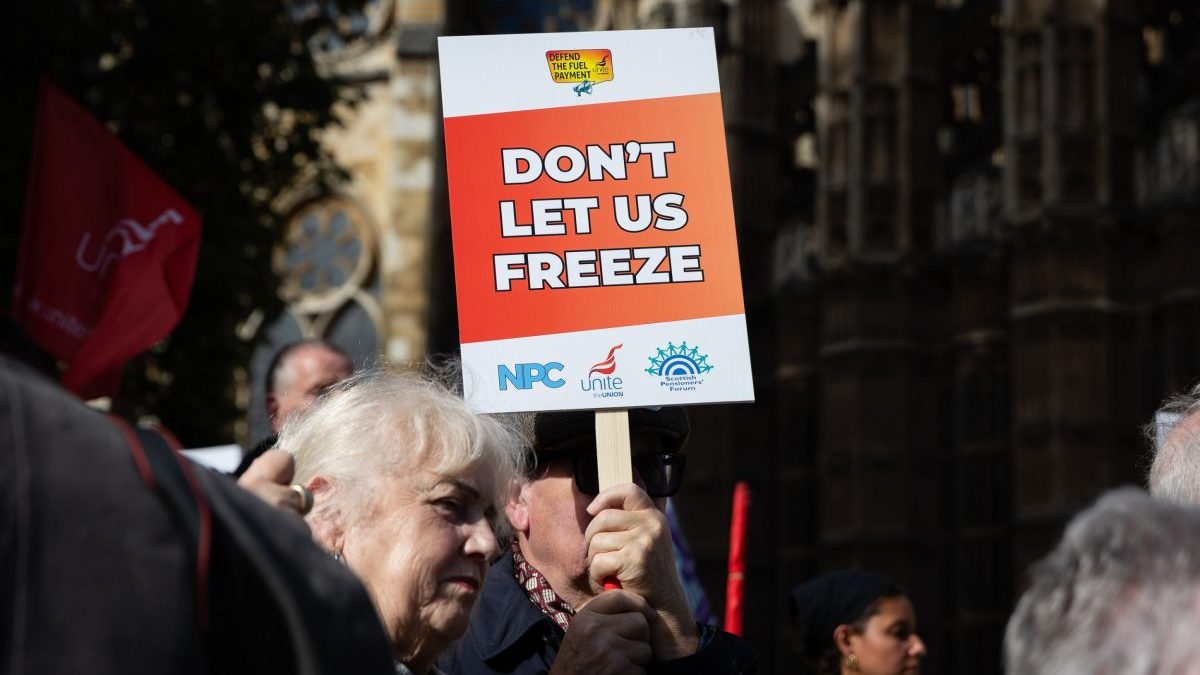Retirees with income over £35,000 will not receive the winter fuel payment, but many will be pushed above this limit due to inflation-linked increases to pensions
Over 100,000 people will lose out on the winter fuel payment next year as a result of a hike to the state and private pensions, new analysis shows.
Currently, retirees with income over £35,000 will not receive the winter fuel payment, which is worth up to £300.
As the state pension is expected to rise by 4.7 per cent in April 2026 – in line with wage growth – and many company pensions will increase in line with inflation, assumed to be 4 per cent, it means a large number of retirees’ income will be pushed above this amount.
New FeatureIn ShortQuick Stories. Same trusted journalism.
Analysis from LCP suggests that over 100,000 pensioners who are currently able to receive the payment will lose it next winter.
It said a similar effect is likely to be seen for each year that the £35,000 threshold remains frozen and could result in up to half a million pensioners losing their winter fuel payments in the next four years.
Steve Webb, former pensions minister and partner at LCP, said: “The new £35,000 cut-off for winter fuel payments is set to be frozen for years to come, meaning that the policy will bite progressively harder as inflation-linked increases in other pensions cause people to cross the £35,000 line.
“Given that inflation-linked increases are simply designed to maintain people’s standard of living, it is hard to see why they should be treated as making people ‘better off’ and hence less deserving of a winter fuel payment.
“People who cross the line in the coming years will have experienced a winter fuel payment ‘rollercoaster’, first having it taken away, then given back and now lost again.”
The winter fuel payment has been a source of political contention after it was means-tested by Labour in 2024 before being restored in 2025 for those with an annual income of under £35,000 following backlash.
However, with the inflation-linked increases expected to increase pensions in the coming months, many face having the payment taken away from them yet again.
Pensions minister Torsten Bell told the House of Commons in June this year that there were no plans to adjust the £35,000 threshold.
The table below shows how someone on an income of £33,600 in 2025/26 – and therefore currently entitled to the winter fuel payment – could lose it in 2026/27.
In this example the individual receives the standard rate of new state pension and receives a company pension which makes their total annual income £33,600.
This means they are likely to see their state pension go up by 4.7 per cent in April 2026, in line with the triple lock which sees it rise each year with the highest of average earnings, inflation or 2.5 per cent. This year, average earnings are expected to be the highest of the three.
The example also sees someone’s company pension go up in line with inflation, assumed to be 4 per cent in the year to September based on the Bank of England’s latest forecast.
As a result of the combined increase in the state and company pension, the individual has a total income of £35,027 in 2026/27, pushing them above the existing threshold.
Reversing the winter fuel payment cut made last year comes with a hefty £1.25bn price tag – sparking concerns about potential tax increases or cuts to other public services in the Budget later this year.
Understanding the winter fuel payment
The winter fuel payment is a one-off, tax-free payment made to households with someone over state pension age to help with heating costs.
For the 2025-26 winter season, the payment will be extended to all pensioners in England, Wales, and Northern Ireland who were born before 22 September 1959 and lived in these countries during the qualifying week of 15 to 21 September 2025.
Eligible individuals will receive £200 if they are under 80 years old or £300 if they are 80 years old or over.
However, if an individual’s annual income exceeds £35,000, they will be required to repay the payment through their tax code or self-assessment tax return.
This policy change aims to ensure that the payment reaches those who need it most while reducing unnecessary expenditure.
Residents of Scotland are not eligible for the winter fuel payment. Instead, they will receive the winter heating payment, which is a similar scheme.

